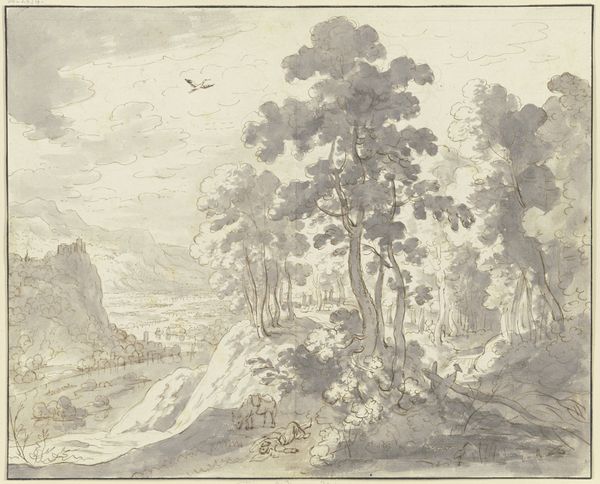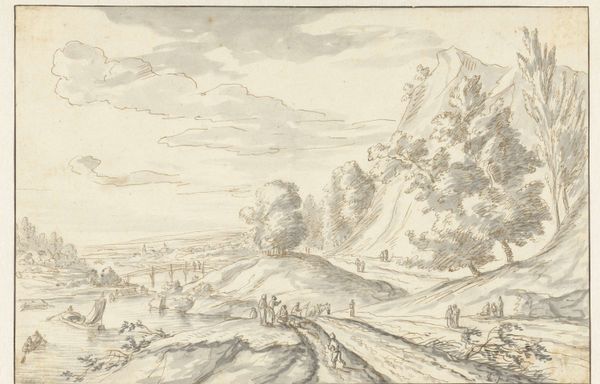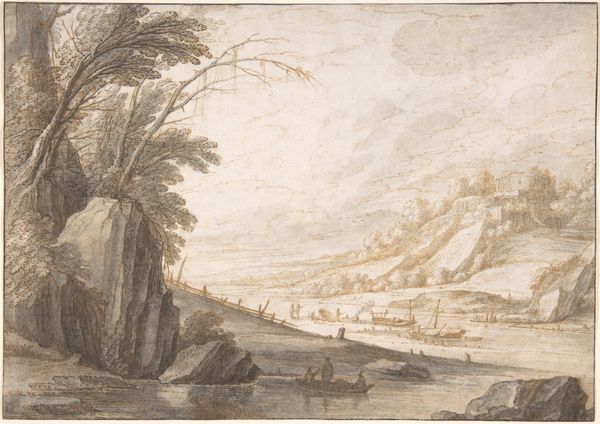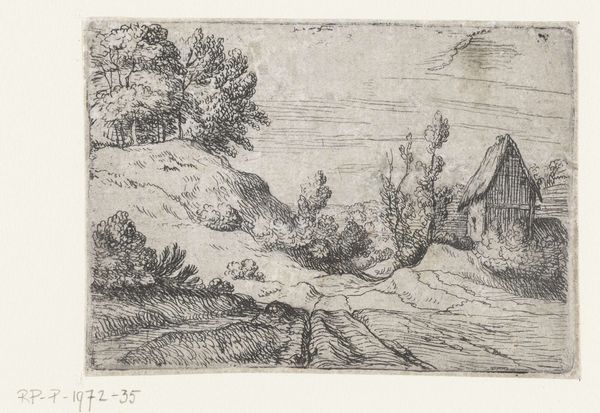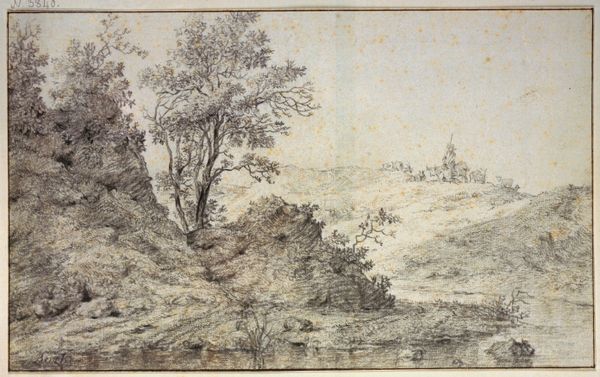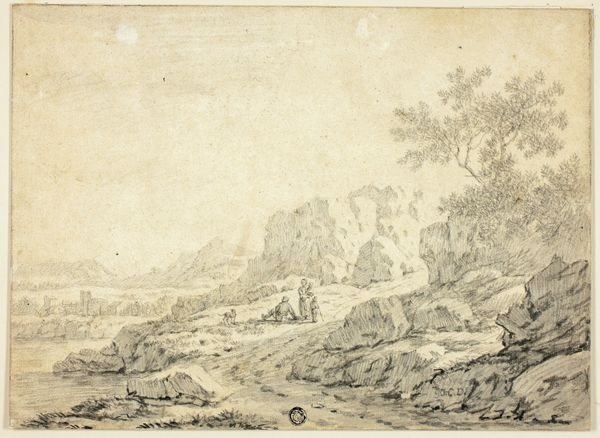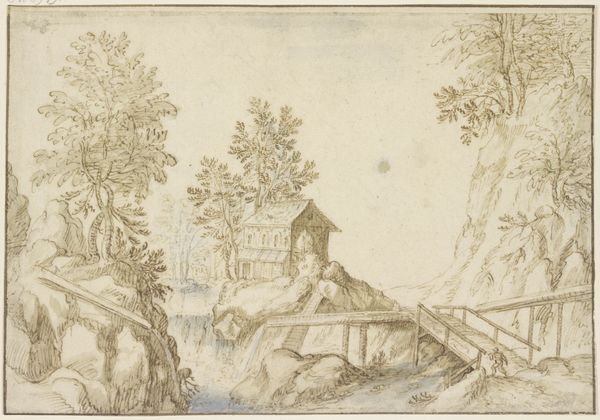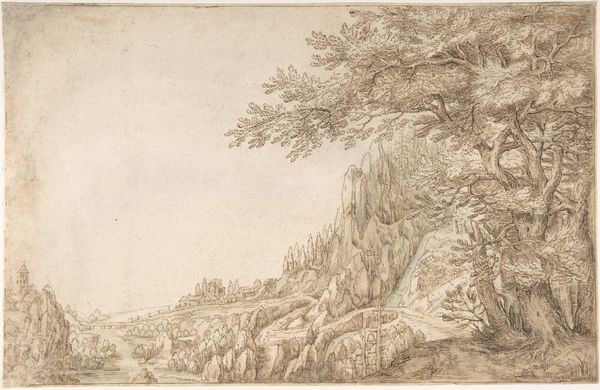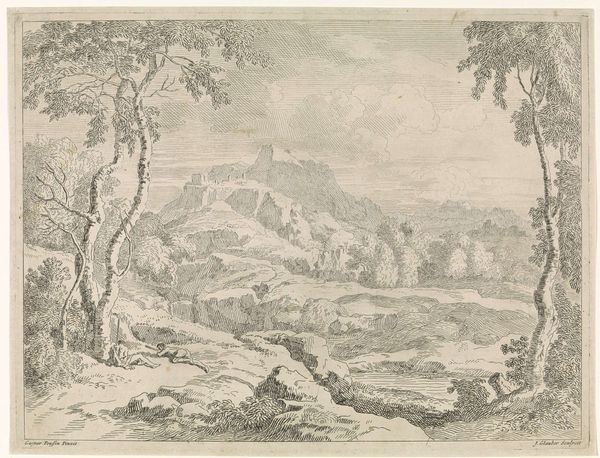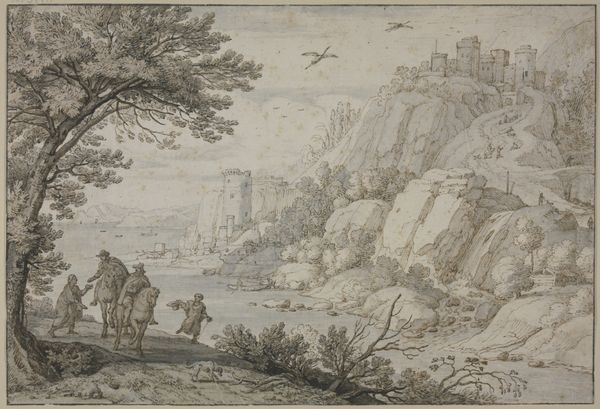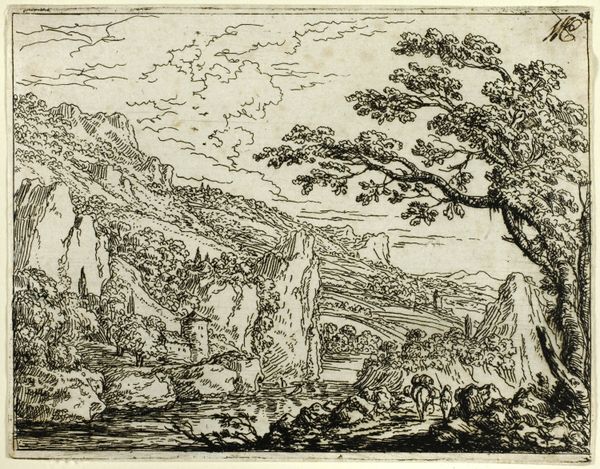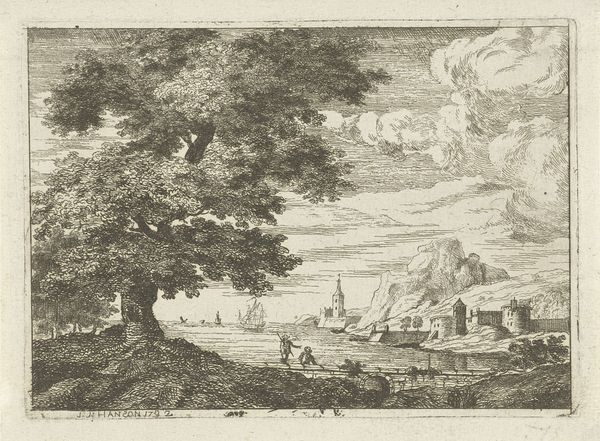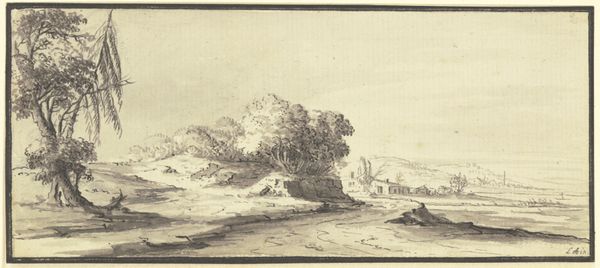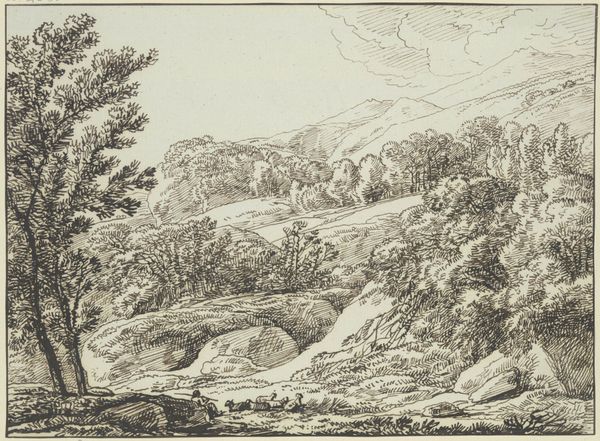
drawing, painting, paper, watercolor, ink
#
drawing
#
ink painting
#
painting
#
landscape
#
paper
#
watercolor
#
ink
#
geometric
#
early-renaissance
#
watercolor
Dimensions: height 120 mm, width 150 mm
Copyright: Rijks Museum: Open Domain
Abraham de Vries rendered this mountainous landscape with pen and watercolor around 1613. Dominating the scene, a wooden bridge connects the old with the new. The bridge, an archetypal symbol, is here rendered as fragile, a reminder of both our ingenuity and the precariousness of our constructions. The motif of the bridge echoes through time. Consider the Roman aqueducts, monuments to power, or the delicate arched bridges in Chinese landscape paintings, symbols of harmony. Yet, in de Vries's depiction, the bridge appears unstable. This may reflect the anxieties of a time marked by religious and political upheaval. The bridge captures a potent psychological space, a threshold. It evokes our deepest fears and desires linked to the unknown, the crossing from one state to another. The emotional resonance of the image lies in this tension, engaging our collective memory of transitions and the inherent human struggle to overcome obstacles. The bridge is not only stone and wood, but a vessel of hope, fear, and the timeless pursuit of connection.
Comments
No comments
Be the first to comment and join the conversation on the ultimate creative platform.
